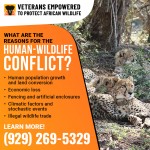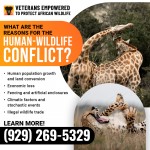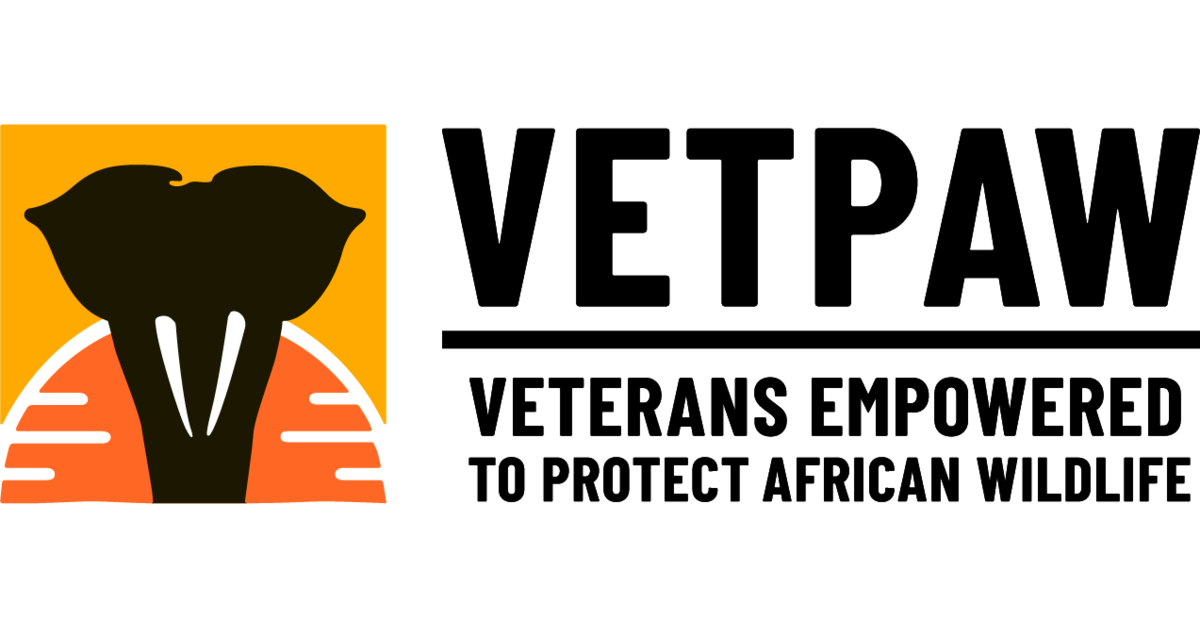What are the reasons for the human-wildlife conflict?
Conflicts between people and mammals currently rank among the highest main threats to conservation in Africa. VETPAW reviews the challenge in detail in the blog below.
What is human-wildlife conflict?
Human-wildlife conflict is when encounters between humans and wildlife lead to negative results, such as loss of property, livelihoods, and even life. These encounters not only result in suffering for both people and wildlife immediately impacted by the conflict; they can also have a global reach by affecting groups such as sustainable development agencies and businesses.
Wildlife and the communities that live near it are most directly impacted by human-wildlife conflict. A two-edged sword, human-wildlife conflict can result in the decline and potential eradication of species while simultaneously causing financial losses and threats to health and safety, livelihoods, food security, and property of communities residing near the wildlife.
The competition between rural communities and wild animals over natural resources can lead to consequential tangible costs to both people and wildlife.
Here are some of the reasons human-wildlife conflicts are on the rise:
1. Human population growth and land conversion
As the human population rises exponentially, it entails settlement expansion and encroachment into mammalian habitats, constriction of species into marginal habitat patches, and increased direct competition for coexistence.
To support the expanding population, land cover conversion is on a rise to meet the need for economic profitability and livelihood sustainability. As livestock populations rise to support the human population needs, there is an increasing overlap of diets and forage competition with wild herbivores. This results in overgrazing and decline or even local extinction in wild herbivore populations. This causes predators to prey on livestock. In response, landowners often shoot and kill predators found on their land, or the neighboring lands to avoid economic loss associated with livestock predation. This is a vicious cycle that exacerbates the human-wildlife conflict.
2. Economic loss
A variety of mammals including the endangered African Bush elephants are known to cause annual crop loss in some parts of Africa. Whereas livestock predation by the endangered leopard, the vulnerable lion, and cheetah or spotted hyenas leads to valuable revenue loss. This exacerbates the existing human-wildlife conflict.
3. Fencing and artificial enclosures
Fencing has been a conservation management tactic for a long time and an effective tool for alleviating human-wildlife conflict by keeping wildlife out of certain zones, controlling animal movements and disease outbreaks. However, it also constrains access to essential habitats; blocks migration routes and pathways for escaping natural threats for the species; causes loss of genetic exchange. overgrazing, and habitat degradation. However, local communities are often found flouting these boundaries to access the natural resources for their livestock and livelihood. Wildlife such as baboons and lions are known to jump over the fence and into livestock enclosures.
4. Climatic factors and stochastic events
As climate change becomes rampant and unpredictable, the incidences of human-wildlife conflict also rise. For instance, seasonal changes in rainfall are directly correlated with lion predation intensity on livestock in Tsavo National Park in Kenya. Monthly rainfall predicts lion attacks on livestock during seasonal rains. Similarly, the intensity of livestock predation by predators would increase in Sengwa Wildlife Research Area, Zimbabwe, during the dry season when vegetation cover is scarce.
5. Illegal wildlife trade
The illegal wildlife trade can be clustered into one of two categories: (1) the bushmeat trade, the illegal harvest of non-domesticated animals in tropical forests to meet local and regional consumption demand, and (2) the international trade in body parts of endangered animals to meet the international black-market demands.
Bushmeat represents an important source of animal protein for humans in tropical Africa. The transfer of Zoonotic diseases and biodiversity loss are two primary consequences associated with bushmeat consumption.
The annual circulation of $17 billion annually, illegal wildlife trade is driven by non-scientific beliefs that the consumption of an animal or its body part would grant it consumer the animal’s potency.
The conservation efforts are affected by the developed negative attitudes of the local people toward wildlife. This threatening cycle can be broken by offering protection to rural livelihoods, reducing their vulnerability, and counterbalancing losses with benefits, and fostering community willingness to participate in conservation.
VETPAW has been tirelessly working to support the local communities to earn their livelihood by supporting the wildlife and by creating awareness about the impact of wildlife extinction on local communities as well the world at large.
VETPAW - Veterans Empowered to Protect African Wildlife
Founded in 2013, VETPAW is a non-profit organization and a community of US war veterans dedicated to protecting African wildlife and training local African rangers in the war against poaching.
Visit VETPAW.org or call at (929) 269-5329 to make a contribution or volunteer for sustainability and wildlife conservation.


























